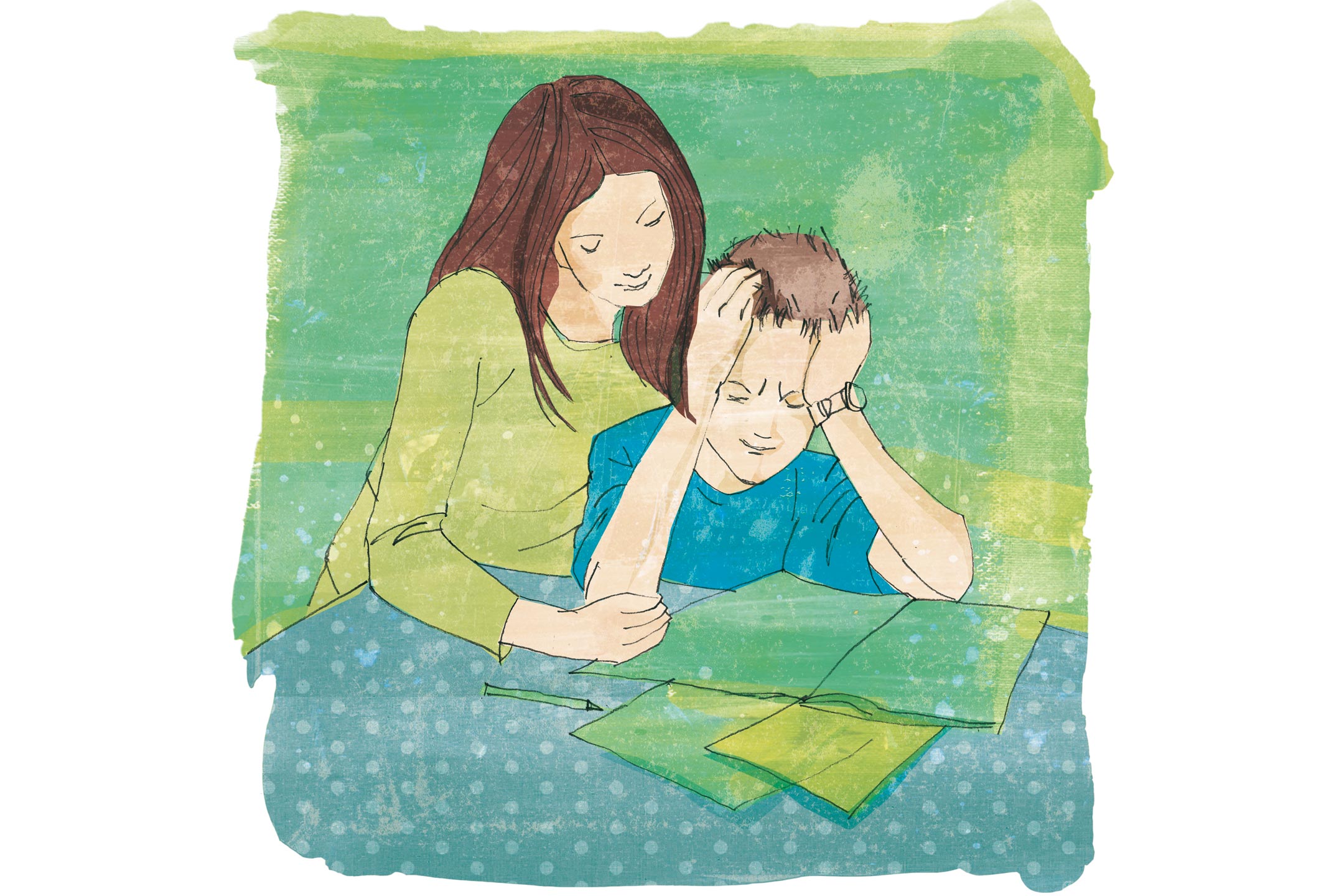
06 Oct Testing Perspectives: It’s that time of the year
Former teacher Sarah Pietrzak finds herself a little tested by her son’s reaction to the impending literacy and numeracy assessments.
“Please Mum, don’t make me do it. I’m going to fail, aren’t I?” My eldest child looked at me imploringly. And in that moment I understood. It took those words finally to get me to understand what can only be described as the other side of the story.
I marked thousands of exam papers during my former career as a teacher. I was present when national test papers were created, both here and overseas. I watched arguments ensue over marks schemes as they were slowly and painstakingly created – anyone who criticises that particular aspect of the process needs to see what goes on.
I saw people spend literally hours agonising over the merits and the shortcomings of five, maybe six words that had been scrawled, usually almost illegibly, on a piece of paper. And I participated in lively debates over the validity of arguments presented by teenagers who will one day lead this country. I felt privileged each time to be in the room; to be part of a process of creating tests that had meaning and validity for teachers and students alike. Tests that were designed to help diagnose the strengths and weaknesses in a student’s learning; to identify gaps in knowledge.
Therein lies the problem, however. Tests help to identify those gaps, but inevitably it is then up to the schools and the parents to address these issues. There are those who think tests do nothing but highlight the weaknesses of students and staff. In many ways, highlighting weaknesses is a good thing. I think that there is an inherent danger that students will slip through the cracks of the education system; that we do fail our students sometimes.
It is all too easy to criticise the teacher because a child can’t read or write properly. But the reality is that there is only so much teachers can do given their limited time constraints, the demands of the curriculum and the nature of school classes.
On many occasions, the role of the parents comes into question. Sometimes parents don’t help because they simply don’t know how to do certain things with their children. In other cases it’s because they’re too busy juggling work or other children, or they lack the confidence even to try. Over the years I have lost count of the number of parent-teacher interviews I’ve conducted at which parents have asked me how they can help their child to improve their reading and writing.
I always encouraged them to spend time reading with their child; to find good-quality books and read them together. To ask their child questions about what they were reading, to use expression and to make reading a joy, not a chore. It is something so simple, but a win-win situation for parent and child.
For the vast majority of teachers, NAPLAN is viewed as a nuisance. It interrupts valuable teaching time, and the delay between the testing and the results arriving often means that students have progressed substantially in that time – sometimes rendering the results almost meaningless. It is, however, simply a snapshot and should be regarded as such. It provides context and a pattern and, for parents, it can be seen as useful when comparing their child’s results, say, from Year 3 to Year 5.
This year, as a parent, I saw the process of national testing from a different perspective. My eldest child sat the NAPLAN tests for the first time. Frankly, I couldn’t have cared less about them. He’s only in Year 3, and for me the tests at this stage are simply a benchmark. It was his reaction that was so distressing. His school didn’t make a big deal of the tests, which I was relieved about. I think they may have shown the children the previous year’s paper and maybe sent a copy home to us as well. I didn’t open the pack, because I was pretty familiar with the material anyway and I didn’t want to bother my child with it.
In the weeks leading up to the tests, when my son began to fret on an almost daily basis about them, I saw a whole different side to the issue. It’s one of those things I guess you don’t ‘get’ unless you’re a parent. I suddenly understood why many people were so vociferous in their opposition to the testing. For parents with children who are struggling in literacy or numeracy, or children who have special academic or behavioural needs, these tests must be an unmitigated nightmare.
My son had only just turned eight at the time of testing and while I’d still argue that I think it was worth it for him to do the tests, I realised that I lacked a certain understanding about the implications of the tests for so many.
The tests aren’t perfect and neither is the system. But I believe we have to start somewhere in making our education system better and more publicly accountable. NAPLAN isn’t necessarily the right way, but it’s a start – and that’s better than nothing.
Illustration by Paula Mills

